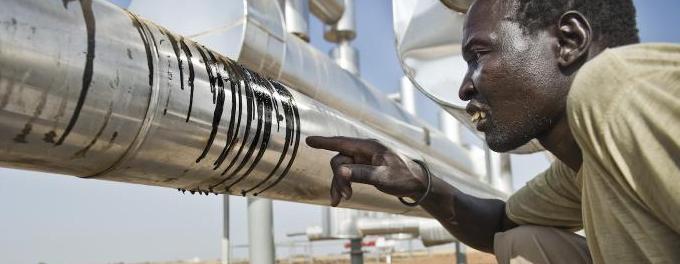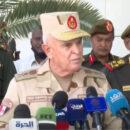How War, Oil and Politics Fuel Controversy in South Sudan’s Unity State – By Brian Adeba

 The recent move by the Unity State government to expel a UN diplomat for authoring a report that accused the SPLA of human rights abuses in the state follows a long line of controversial happenings that have dogged Unity since the 1980s.
The recent move by the Unity State government to expel a UN diplomat for authoring a report that accused the SPLA of human rights abuses in the state follows a long line of controversial happenings that have dogged Unity since the 1980s.
The expulsion of foreign individuals deemed undesirable by the authorities is usually the prerogative of the national government. This was the case when Juba kicked out Toby Lanzer, the UN Humanitarian Coordinator for South Sudan, in May.
What makes the expulsion order (issued 12 July) controversial is that this is the first time in South Sudan that a state government overstepped its own jurisdiction in matters that pertain to the ministry of foreign affairs. If the mea culpas that followed are anything to go by, it is easy to surmise that this move embarrassed officials at the ministry of foreign affairs in Juba, prompting Minister Barnaba Marial to rescind the order.
In all fairness, such gaffes are not only peculiar to officials in Unity State. If anything, incompetence, inexperience and other shortcomings – couched in the much-beloved NGO term, “lack of capacity” – are hallmarks of government business across the board in South Sudan.
But for better or worse, Unity State seems to court an inordinate share of controversy compared to other states in South Sudan.
Perhaps this affinity for controversy began with the discovery of oil in the state in the late 1970s. To the South Sudanese, oil was a harbinger of good tidings. Finally, their region, which lagged behind the North in development, would witness a change from the sale of this valuable resource.
But this was not good news to Sudan’s ruling elite, who viewed oil as a resource that would embolden southern secessionist ambitions. So when President Jaafar Nimeri announced this discovery on national television, he was coy about the exact location, only saying that oil had been discovered some 450 miles southwest of Khartoum.
Southerners, of course, were aghast at this deliberate omission, in addition to other insults such as the decision to build a refinery in Kosti rather than in South Sudan, and the exclusion of southerners from the petroleum board.
What followed was an attempt at revisionist history by Sudan’s ruling elite that added more fuel to the controversy. The region was renamed Unity, a move that cast it as a neutral meeting ground between North and South while erasing its southern identity to mitigate traces of the dichotomy that defined Sudanese politics at the time.
But even more controversial is the fact that a South Sudanese allegedly pitched the idea of carving out a “unity” state to Nimeri. Admittedly, the literature on the origin of the name is quite thin. But Joseph Lagu, in his book Sudan: Odyssey Through A State, from Ruin to Hope, alleges that non other than the veteran journalist and politician Bona Malwal suggested the idea to Nimeri in order to curry favour with the dictator. (In his latest book, Sudan and South Sudan: From One to Two, Malwal does not address this allegation).
In January 2009, Unity State grabbed the headlines with a story about the eye-popping sale of 400,000 hectares of land by a company linked to the warlord Paulino Matip to Philippe Heilberg, a former Wall Street banker. Although associates of Matip later denied the sale of such a large amount of land, an area estimated to be the size of Dubai, it marked yet another point in Unity State’s accumulation of controversial accolades.
But perhaps the most serious controversy to hit the state in recent years was in the run-up to the 2010 elections, when Machar’s wife, Angelina Teny, decided to contest the governor’s position in Unity, running against the heavyweight incumbent, Taban Deng. In South Sudan’s male-dominated political arena, the move was lauded as a positive gesture that would empower women.
Machar probably received some accolades for being progressive and open-minded in “˜allowing’ his wife to run for political office. If there were any dissenting voices within the SPLM, they were not saying so publicly.
But to fully comprehend this dynamic, it is crucial to situate it within the broader context of economics, cultural mores and political ambition in the South Sudan body politic.
In a country with no other significant means of revenue generation, except oil, Unity State is the goose that lays the golden eggs. In the fractured politics of the country, the president in faraway Juba requires a Unity State governor who is an ally – and Taban Deng was that man for Salva Kiir.
So for Machar to “allow” his wife to run against the president’s man as an independent candidate was to negate the dictates of culture where patriarchy is still the order of the day. As well, the move was seen as an expression of Machar’s own political ambition for the top office (and an affront to Kiir) because how else could he allow his wife to do such a thing when he was supposed to be in the same camp as the president?
A lot of ink has been devoted to explaining how the genesis of the current conflict in South Sudan started as a disagreement over power between Kiir and Machar in Juba. However, the distant roots of the conflict in Unity, when Angelina threw her hat in for the race for governor in 2010, are often overlooked.
Are Unity State’s days as a magnet for trouble over? Not yet. The state’s strategic location, both because of oil and its proximity to Sudan, makes it a magnet for controversy. Secondly, the legacy of the 1991 split that exacerbated ethnicity in the South Sudan body politic, not to mention the advent of warlords in the state and endless strife, will continue to fuel these sort of problems.
As for oil, its presence is both a blessing and a curse. Anything in which godliness and evil are uttered in the same sentence will likely invoke controversy.
Brian Adeba is an Associate of the Security Governance Group in Canada. Reach him on Twitter @kalamashaka






Very interesting – thanks for the insights.